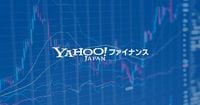The dollar-yen exchange rate has surged to the 148 yen level, driven by significant market movements following recent statements from U.S. President Donald Trump. On April 10, 2025, the NASDAQ Composite experienced a remarkable increase of over 10%, while the Dow Jones Industrial Average rose by more than 2600 points, reflecting a strong bullish sentiment in the stock market.
Trump announced plans to raise tariffs on China to an unprecedented 125%. However, he also revealed that the U.S. would temporarily suspend tariff increases for 90 days on countries and regions that have not retaliated against U.S. measures. This dual approach appears to have calmed market fears and prompted a wave of buying in the dollar, which rapidly ascended from around 145 yen to a peak of 148.04 yen shortly after 3 PM Japan time.
In the wake of Trump's tariff announcements, the dollar's buying momentum accelerated, leading to a swift rise in the dollar-yen exchange rate. The market responded positively to the prospect of reduced trade tensions, with investors quickly moving to capitalize on the bullish trends in both currency and stock markets.
As the trading day progressed, the dollar continued to strengthen, reflecting broader investor confidence. The dollar-yen rate's rise coincided with the release of the Federal Open Market Committee (FOMC) minutes at 3 AM Japan time, which indicated that a majority of committee members believe inflation could persist longer than previously anticipated. This news further fueled the dollar's ascent as traders adjusted their expectations regarding future monetary policy.
According to reports, the dollar's rally has been bolstered by a combination of factors, including Trump's tariff strategy and the FOMC's insights into inflation trends. The swift increase in the dollar-yen rate has caught the attention of traders, who noted that the currency pair's movement was particularly volatile, with stop-loss orders triggering additional buying.
Market analysts suggest that the significant fluctuations in the dollar-yen exchange rate are indicative of a broader trend, where geopolitical and economic factors are closely intertwined. The announcement of a temporary suspension of tariffs has been interpreted as a sign of potential easing in trade tensions, which could have lasting implications for the global economy.
In the context of these developments, the NASDAQ's surge of over 10% reflects a strong recovery in technology stocks, which have been under pressure in recent months due to rising interest rates and inflation concerns. The bullish sentiment in the stock market has been mirrored in the currency markets, as investors seek to capitalize on the perceived stability offered by the dollar.
As the situation unfolds, market participants are closely monitoring both the U.S. and global economic indicators. The recent volatility in the dollar-yen exchange rate serves as a reminder of the interconnectedness of financial markets and the impact that policy decisions can have on investor sentiment.
Looking ahead, the focus will likely remain on the Federal Reserve's monetary policy stance, particularly as inflationary pressures continue to dominate discussions among economists and policymakers. The potential for prolonged inflation could lead to more aggressive interest rate hikes, further influencing the dollar's strength against other currencies.
In summary, the dollar's rise to the 148 yen level is a reflection of a complex interplay of economic data, geopolitical developments, and market sentiment. As traders navigate these turbulent waters, the importance of staying informed and agile in response to changing conditions cannot be overstated.






